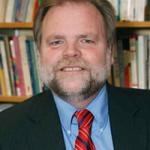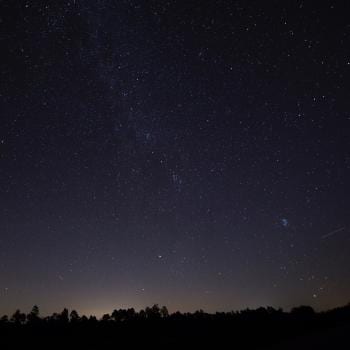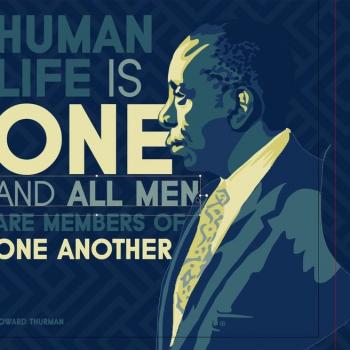I love the Fourth of July. I grew up with parades, fireworks, and picnics, and this year will be no exception. But, as I grow older, the meaning of the Fourth of July has changed for me. This year, I am especially conscious of the growing distance between the elusive American dream and the realities of American life. In the past year, we’ve seen children separated from parents, housed in camps that fail any test of hygiene or ethics. We’ve observed an upsurge of white supremacy and racism, including racially charged comments from the president of the United States and his relatives. The leaders of our nation have turned their backs on science, and stifling scientific research, selling out future generations through deregulation, the downgrading of environmental policies, and emphasis on fossil fuel for the sake of short-term financial and political gain.
As tanks are planted in the nation’s capital this Fourth of July, punctuated by aerial flyovers, the Fourth of July seems more like the celebration of power and privilege, and the stroking of an executive’s ego, than crowning of national goodness and brotherhood and sisterhood from “sea to shining sea.” Politicians shout nation-first and encourage others to do so despite the dangers of going alone to our national security and planetary well-being.
Independence, celebrating by the framers of our liberal democracy in the 18th century, has led to creativity, innovation, and adventure. But, our emphasis on independence – the achievements of the self-made person – needs to be complemented by the creativity, innovation, and adventure which comes from embracing interdependence and the importance of healthy relationships among persons, communities, and nations. We need to have a declaration of interdependence, as many have asserted, to complement the virtues of our declaration of independence.
For Christians, the Lord’s Prayer is the ultimate guide to interdependence. Jesus’ prayer is a relational, interpersonal, and international document, which compels us to go beyond individual and national self-interest to world loyalty.
It all begins with God! Whether we call God “Father,” “Mother,” or “Parent,” the words “Our Father/Mother who art in heaven” define both parenting and politics. “Our Father/Mother” can be described as “the parent of us all.” “All” includes everything and everyone, no outsiders, no marginalized, no forgotten, or second class. As Christian mystics, including Nicholas of Cusa, asserted “God is a circle whose center is everywhere and whose circumference is nowhere.” Everyone is at the center, everyone matters, everyone belongs, and the circle embraces all, the child in the borderlands, the Yemenese parent, the inner city and Appalachian teen, the latchkey child in our wealthy suburbs, the twenty-one week old fetus and the mother contemplating an abortion.
We can proclaim the need for borders, but for the follower of Jesus compassion always trumps political boundaries. Regardless of where we come from, we are God’s beloved. The Lord’s Prayer demands a politics of inclusion grounded in our allegiance to God over nation that defines border protection, economic policy, and budgetary decisions.
“God…who art in heaven, hallowed by thy name.” God is God, and you aren’t, the prayer proclaims. Bloviating political leaders come and go, and like grass are here today and gone tomorrow. Nations rise and fall and are judged by whether they care for the lost, lonely, hungry, thirsty, and poor. Despite the idolatrous bloviating of court preachers, we may as a nation succumb to a “famine of hearing God’s word” that can’t be remedied by school prayers, stringent anti-abortion laws, and the prosperity gospel or high-tech megachurches. Abraham Lincoln was right when he said, “My concern is not whether God is on our side; my greatest concern is to be on God’s side, for God is always right.” To be on God’s side, from the perspective of the Lord’s Prayer, is to be aligned first and foremost with God’s vision of Shalom, the Jubilee year, which honors the poor and demands justice from the wealthy and powerful.
Surely the meaning of “thy kingdom [kindom, realm] come, thy will be done, on earth as it is in heaven,” demands that our ultimate allegiance, to quote Bob Cornwall, is to bring heavenly values down to earth so that God’s vision of Shalom becomes an everyday reality for all of God’s children. “Daily bread” doesn’t mean much to those of us who have bagels, sourdough, and whole wheat bread, not to mention hot dog and hamburger buns in bread boxes as we greet Fourth of July guests, but bread is a matter of life and death to millions across the globe and even in our own nation. Bread matters and if God’s realm is to come, everyone must have bread, and those of us who have too much need to sacrifice so that others might simply live. The privileged among us need to be downwardly mobile to uplift the majority, developing world.
Though not found in the original prayer, “power” and “glory” that end the most well-known versions of the prayer are not to be identified with the power of coercion, of would-be dictators, or a God who demands subservience at the risk of eternal punishment, but relational power, the power of love, a God with skin who is among us, feeling our pain, comforting the grieving and forgotten, and equally treasuring the impoverished as the wealthy. God’s relational power inspires us to put cooperative and compassionate relationships at the heart of our personal life as well as in the power dynamics of public policy and national security. We can protect our nation’s integrity without losing our national soul in the process.
Yes, the Lord’s Prayer – the Prayer of Our Savior – turns everything upside down and challenges us to balance rights with responsibility, comfort with sacrifice, largesse with simplicity, and to create a nation that truly embraces interdependence not just within our borders, but on our borders and in our commitment to heal the planet even if it means placing the needs of the planet and the lives of generations to come ahead of our own or our nation’s. Then we would truly embody our “better angels” in the celebration of Interdependence Day.
++++
Bruce Epperly is a Cape Cod pastor, professor, and author of fifty books, including “One World: The Lord’s Prayer from a Process Perspective,” “Spiritual Decluttering: 40 Days to Spiritual Transformation and Planetary Healing,” “Become Fire: Guideposts for Interspiritual Pilgrims,” and “The Mystic in You: Discovering a God Filled World.”












